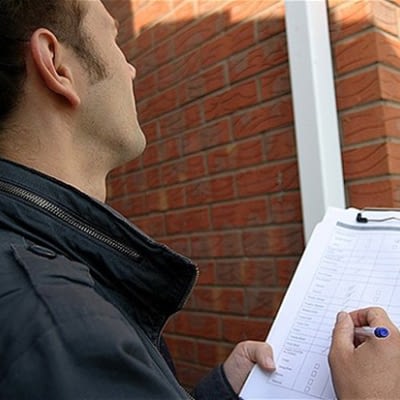Buyers often think that the cost of a property survey is adding an unnecessary expense to an already very costly time. However, just how many buyers would feel confident investing in a car without it having an MOT or service documents? Research completed by the insurance firm Churchill showed that on average in the UK only 25% of most homeowners purchase a property survey for their new home. However, figures show that 56% of these that had major building works carried out on the property after discovering pre-existing issues, said that when they had been aware of the faults in advance it could have influenced their decision to get the property. Just like with many second-hand purchases, it really is useful to know the previous history and overall condition before you get.
1. A mortgage valuation will not benefit the homebuyer
A valuation informs the lender of the worthiness of the property they're lending against, to verify whether the property is worth what you are spending money on it. Through the valuation (usually significantly less than 20 minutes in length) characteristics of the property including significant defects which can have an impact on the property?s value are considered, however, the valuation scope doesn?t delve into common issues such as damp, dry rot, subsidence, in just as much detail as a survey. Additionally it is worth noting that the lending company does not have to disclose the valuation report to the homebuyer.
Traditionally, a surveyor would have visited the property to compile the valuation report. However, these days, most valuations are completed remotely as desktop valuations. Desktop valuations do not require surveyors to visit the property, but instead depend on recent sales data, that is all gathered online and remotely.
2. Surveyors will take a target and impartial look at a home
All our surveyors take an impartial view when inspecting a house, which alongside their wealth of skills and experience, make it more like that they can be able to spot problems a buyer may not notice. While the average home buyer spends 35 minutes viewing a potential property before making a decision whether or not to purchase it, our surveyors will spend at the least two hours inspecting the property (according to the size). Our surveyors will also go in areas which you might not visit before moving in, including the attic!
3. Save yourself a costly bill down the line. When Take a look at the site here can?t afford a survey, are you considering able to afford any surprise repairs?
In line with the Royal Institution of Chartered Surveyors (RICS) buyers who didn?t get yourself a survey faced on average �5,750 worth of repairs if they moved in and 17% of these ended up paying more than �12,000 typically to create their homes habitable. Ask yourself, if you can?t afford the price of the survey, can you afford the hefty cost of house repairs down the road?
4. Find issues and address the impact with contractors before you invest in purchase and sign any contracts
Should the surveyors encounter any defects that require expensive repairs, it doesn?t automatically mean you shouldn?t choose the property. If the seller not wish to address the reported issues, you could use the report as a renegotiation tool, asking for the price of the property to reflect the cost of the repairs. By decreasing the purchase price, you will have the amount of money to do the repairs by someone that you select. Our digital home buyer report, Digital Home Survey, permits you to send issues reported in the survey directly to your contractors, for an instant estimate of work.
5. Your surveyor will have a broad understanding of known issues within your chosen area and any local risks
We realize that local knowledge matters. We of RICS surveyors could have a broad understanding of your chosen area, forms of local property, and issues to check out for, such as for example past flooding or potential risk, proximity to pylons, overhead cables and electro-magnetic fields, current or past underground mining.

